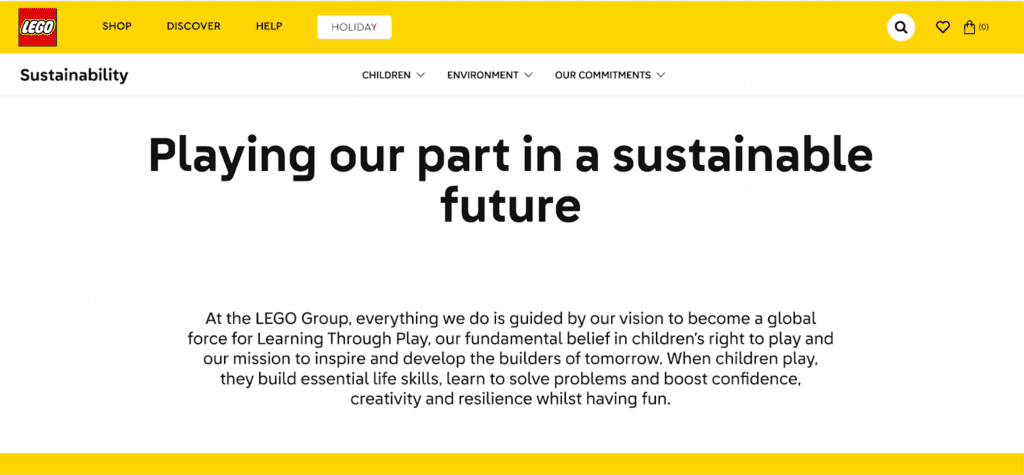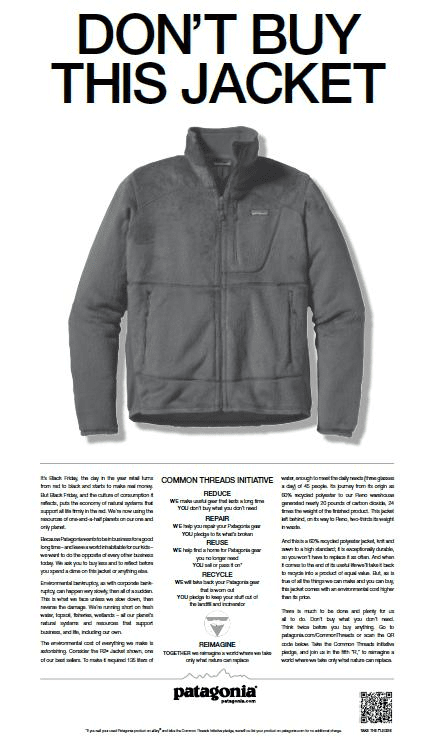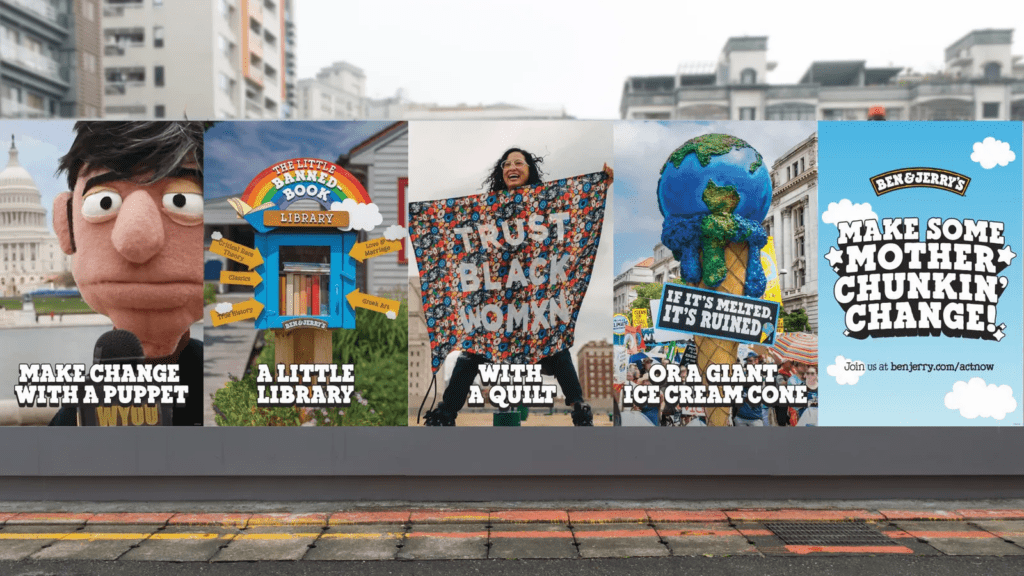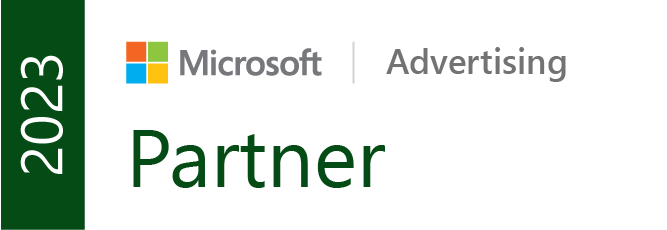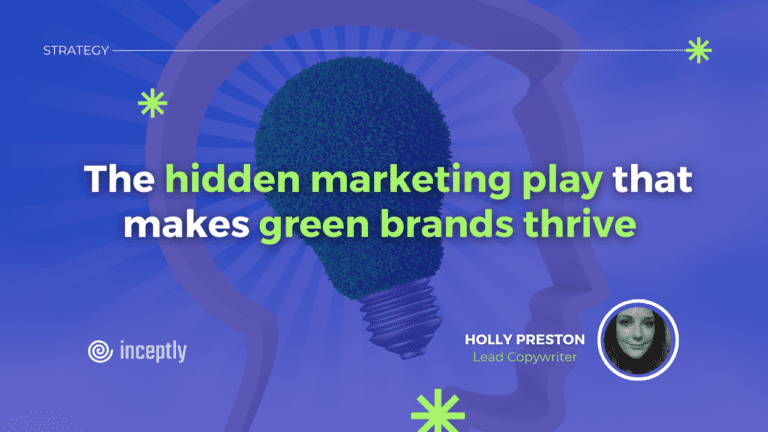
Picture this: A major clothing brand tells people NOT to buy their products during Black Friday. Sounds nuts, right? Yet when Patagonia did exactly this, something remarkable happened. Sales soared by 30%, customer loyalty deepened, and the industry took notice. Why? Because in a world drowning in greenwashing, authentic sustainability speaks volumes. 🌱
Want to brainstorm with our team on new ways to scale your business with YouTube Ads (and other performance video platforms)?
Join us for a free YouTube ad brainstorming session👇
The LEGO effect: Building a better tomorrow
Want to see another brand nailing authentic sustainability? Look at LEGO. They’ve taken their fundamental belief in children’s right to play and turned it into a powerful force for change. This isn’t your typical corporate sustainability program – it’s a comprehensive commitment to building a better tomorrow, brick by brick.
When LEGO says they want children to inherit a healthy planet, they mean business. Each year, they receive hundreds of letters from kids sharing ideas about how to make a difference in the world. And here’s what makes LEGO special – they actually listen and act.
Their actions speak volumes:
What makes this work? LEGO’s clear ethical standpoint helps customers justify their purchases – they’re not just buying toys, they’re investing in a brand that actively works for a better future. From their family-friendly workspaces to their environmental initiatives, every aspect of their operation proves their commitment is genuine.
The result? LEGO has proven that when you align your values with real action, everybody wins. This isn’t just about selling toys – it’s about inspiring and developing the builders of tomorrow while protecting the world they’ll inherit.
📊The numbers don't lie
We’ve hit a tipping point in sustainable marketing:
🌍 49% of consumers will pay premium prices for sustainable products.6
💚 64% of consumers expect companies to actively reduce their environmental impact.7
📈 More than half of consumers are willing to pay a premium for eco-friendly products, proving that sustainability drives purchasing decisions.8
💚 70% of Generation Z say they are actively involved in a social or political cause, with 62% wanting to work with brands to address these issues.9
🤝 57% of Gen Z believe brands can do more to solve societal problems than governments can.10
🚨Why this matters now
Remember when slapping an “eco-friendly” label on your product was enough? Those days are gone. Today’s consumers are savvy, skeptical, and seriously committed to sustainability. They’re scrutinizing every aspect of a brand’s operation, from supply chains to marketing claims.
As Laura Brett from BBB National Programs puts it, “Sustainability marketing isn’t just a box to tick off—it’s a whole-company practice and a cultural shift.” This isn’t just about doing good—it’s about survival in a changing world.
“To truly commit to sustainability, you must make it a part of your business model. It’s no longer good enough to make donations in the company name once a year. If you intend to market yourself as a sustainable business, you must commit to sustainable practices on every level.”
This demand extends beyond tangible products. Consumers are scrutinizing every aspect of a brand’s operation, from supply chains to marketing strategies. Greenwashing can backfire, damaging a brand’s credibility and trust with its audience.
🎯 The Patagonia effect: A masterclass in authentic marketing
Let’s break down why Patagonia’s “Don’t Buy This Jacket” campaign worked:
Direct challenge: They dared to tell customers not to buy, creating immediate intrigue
Perfect timing: Launched on Black Friday for maximum impact
High stakes: Featured in The New York Times, showing real commitment
Clear message: Prioritized planet over profits
Proven results: 30% sales increase through authentic messaging11
✅ The new rules of sustainable advertising for 2025
- Share your journey (honestly) – Think less “We’re green” and more “Here’s how we’re getting greener.” Look at Ben & Jerry’s – they’re not just talking about change; they’re creating it. When they say “ice cream can change the world,” they prove it with every campaign, every product launch, and every public stance they take. This isn’t your typical corporate activism; this is what true brand purpose looks like.
They consistently stand up for what’s right, fighting for the underdog and backing their words with real action. While other brands carefully toe the line, Ben & Jerry’s leads with their values, proving that a brand can be both commercially successful and unwaveringly committed to positive change. And guess what? Their ice cream has never tasted better.
The result? They’ve become one of the world’s most beloved and trusted brands, proving that authentic activism isn’t just good for the soul – it’s good for business. This is what happens when a brand truly lives its values instead of just advertising them. - Make it measurable – Instead of vague promises, share real impact: “We’ve reduced water usage by 50%” hits differently than “We’re eco-friendly.” Back it up with third-party certifications like Green Seal or B Corp.
- Consider using technology platforms that offer real-time tracking and insights to help reduce your carbon footprint in digital advertising activities.
- Build trust through transparency – Your audience doesn’t expect perfection—they expect honesty. Share both wins and challenges. Document your progress. Make customers part of your mission.
📋 The FTC factor
Heads up: The Federal Trade Commission is updating its Green Guides
Smart brands aren’t waiting for new regulations. They’re building transparency into their advertising DNA now.
The growing partnership between consumers and companies in the quest for sustainability is essential. Consumers are driving change with their purchasing power, while brands respond by adopting greener practices – not just to meet expectations, but to future-proof their operations in an increasingly eco-conscious world.
🗺️ Your action plan
Ready to make sustainability more than just a buzzword? Here’s your three-step journey:
- Get real: Audit your current claims. Are they specific? Measurable? True? Start here, because authenticity is your foundation.
- Take action: Choose one meaningful sustainability initiative and document everything. Remember, you’re not just changing practices—you’re creating content that matters.
- Tell your story: Share your progress, setbacks, and lessons learned. Build trust through transparency. Your audience will appreciate the honesty, and your brand will be stronger for it.
What's next? 🚀
As marketers, we have an unprecedented opportunity. Every campaign we create can drive positive change. Every message we craft can inspire better choices. But it starts with a decision: will you lead this change, or chase it?
Begin today. Review one environmental claim in your marketing. Make it more specific, more honest, and more impactful. Because the future of advertising belongs to brands that don’t just say they care about sustainability—they prove it.
The world is watching. What will you be remembered for? What story will your brand tell?
Want to brainstorm with our team on new ways to scale your business with YouTube Ads (and other performance video platforms)?
Join us for a free YouTube ad brainstorming session👇
Want more content like this?
Don’t miss out on the latest news and updates from the world of Direct Response advertising! Subscribe to our newsletter today 👇

Holly Preston, Lead Copywiter
Holly is behind most of Inceptly's successful creatives, supporting the team with her experience and imagination, making her an invaluable asset to Inceptly.
Like this post? Let's continue the conversation!
Get in touch with us by shooting us a quick email or tagging us on LinkedIn or Instagram, and sharing your thoughts. Your feedback helps us keep our blog relevant and interesting.
Get Our Newsletter
Need Help?
Get in touch with us for an insightful evaluation of your ads + actionable tips to help amp up your direct response revenue

